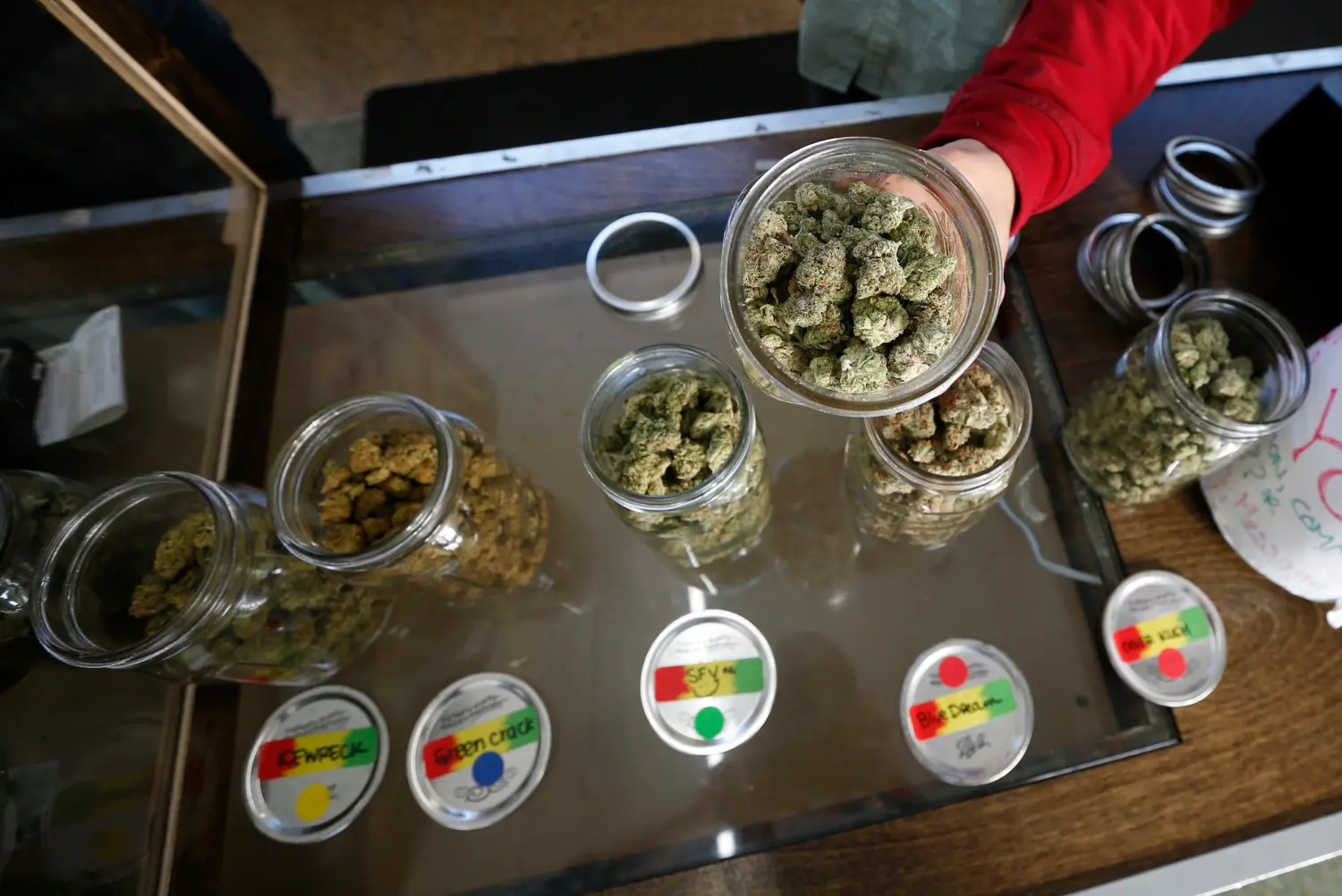This report is part of the Series on Financial Markets and Regulation and was produced by the Brookings Center on Regulation and Markets. This article originally appeared in The Oregonian on April 20, 2018.
In Oregon and other states where medical or recreational marijuana is legal, it’s no secret that dispensary owners continue to face a host of operational hurdles, including a reluctance by banks to do business with them. Owners rightly complain about the safety risks of operating lucrative businesses in cash, not to mention the logistical hurdles of paying employees, other businesses and even their taxes.
Most arguments to resolve this mess have focused on regulation impacting marijuana-related businesses. This misses a major source of the problem: anti-money laundering regulation on banks. Nonsensical bank regulation is harming almost everyone: the federal government, state governments, banks and increasingly other businesses that just happen to interact with marijuana firms. There is a simple solution, if only bank regulators, the Treasury Department, and Congress, had the courage to admit the obvious: We don’t need anti-money laundering rules to find state-licensed marijuana businesses.
Nonsensical bank regulation is harming almost everyone: the federal government, state governments, banks and increasingly other businesses that just happen to interact with marijuana firms.
The complex web of federal regulations that deter banks from working with legal dispensaries starts with the federal government requiring banks and financial firms to file “suspicious activity reports” that help federal investigators detect and uncover criminal enterprises. But when it comes to state-licensed marijuana dispensaries, these reports stop making sense. The purpose of these reports is to help law enforcement identify criminal activity and be able to follow the money to catch leaders of criminal operations. If the federal government wants to find Oregon’s marijuana-related businesses, there is a far more efficient and less costly way: Google Maps.
As background, the federal government has been very clear about bank requirements. Banks are allowed to work with marijuana businesses, as long as they file reports and comply with a heavy set of regulations. Treasury Department guidance states that banks are still required to file suspicious activity reports even in states where marijuana-related activity has been legalized. Nationally, more than 360 banks and credit unions work with marijuana-related businesses, filing more than 2,000 suspicious activity reports a month — a figure that’s doubled in the past year.
Legal requirements on banks go further than just these reports. Banks are required to file reports for anyone depositing funds “derived from illegal activity.” According to that logic, banks must also file a report when a state government deposits tax revenue paid by marijuana firms into the state’s bank account. The result is banks telling Uncle Sam that Oregon is a possible money launderer. Not only does it not make sense to consider a state government a money launderer, there is no reason for banks to be the ones reporting to the U.S. Treasury that Colorado, Washington, Oregon, Alaska, California, Massachusetts, Maine and Nevada are profiting from the sale of marijuana. Voters and state legislators did not exactly make it a secret this was their plan.
Going down this rabbit hole, regulations technically require banks to report every transaction that involves funds derived illegally. If Oregon did not create a separate account for its marijuana-related revenue, then every single check the state writes may require a separate suspicious activity report. There is no value added for banks to provide daily reports on each transaction made by state-licensed marijuana or cannabis firms. But imagine if you were a bank compliance officer, fearful of potential fines and criminal charges for failing to file, and looking over at Attorney General Jeff Sessions. Even if there is no logical reason to continually dump paperwork and filings in the government’s lap, it may be the rational thing to do.
The result is bad news for everyone except the bad guys that these reports are meant to catch. As banks continue to file more suspicious activity reports federal law enforcement officials have more files to review. Federal investigators are looking for needles in the haystack, with banks continuing to dump more hay.
Banks meanwhile have to take resources away from identifying other potential suspicious activities. As the Federal Reserve Bank of St. Louis informed banks considering banking marijuana related businesses: “revenue is high but so are compliance costs.”
Costs get passed on to businesses, customers and taxpayers. Ironically, one of the arguments behind legalizing marijuana for medical or recreational use was reducing costs and eliminating black market concerns. Treating state-licensed marijuana operators as illicit money movers thwarts that purpose. This is not a case of the financial services industry helping law enforcement find hidden drug operators. Quite frankly, these regulatory burdens aren’t helping federal law enforcement officers do anything they can’t already do by searching for marijuana dispensaries on Google maps.





